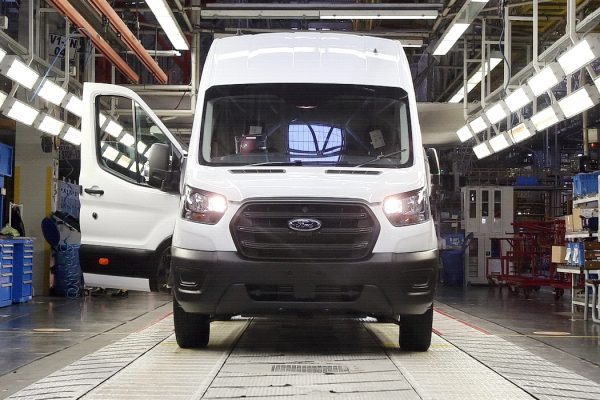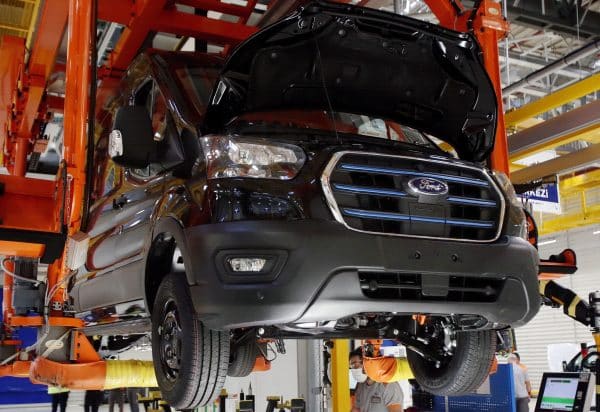
It is now rolling off the production line and the much-anticipated Ford E-Transit is being delivered to customers.
The van is being built in Turkey and Ford says there are more than 5,000 orders from customers ready to be fulfilled.
The new E-Transit is the battery-powered version of what is the world’s best-selling van – and Ford has high hope it will be a success.
The new van will also help to push the efforts of Ford Pro to grow the market for electric vans and the E-Transit comes with a comprehensive suite of software as well as servicing and charging solutions.
Ford E-Transit will boost uptime and productivity
Ford is promising that the E-Transit will boost uptime and productivity and lower costs for operators.
They also say that there is one platform available for everything operators will need to help run their new vehicle for the digital and electric age.
The firm is spending £1.7 billion on developing the factory and has boosted factory worker numbers by 3,000 to help build the new model.
And by 2024, there will be four other electric models in the Ford range to help meet growing demand from customers.
Ford E-Transit offers a competitive range for customers
The E-Transit offers a competitive range for potential customers, a choice of body styles and impressive power and payload capabilities.
It’s aimed at helping customers electrify their fleets painlessly and also boost productivity by using Ford Pro’s telematics, servicing and charging solutions.
The van has undergone stiff testing around the world in various high-tech facilities and 60 pre-production models were created to undertake customer pilots in the real world.
They all performed impressively well, and the knowledge and experience gained has been applied to the launch model.
Ford Transit has defined ‘the van’
The director of commercial vehicles for Ford, Mandy Dean, said: “The Ford Transit has defined ‘the van’ in UK culture for 56 years.
“Now, the E-Transit’s market-leading range represents a significant shift forward not only as a vehicle to reduce carbon emissions, but as a connected vehicle, equipped with data services that will support SMEs and large businesses alike.”


